Interview Jordi Borràs by Jordi Pujolà, Catalan writer in Iceland. With the support of Icelandic Mountain Guides. 15% discount on the excursions code ESCRITOR2019
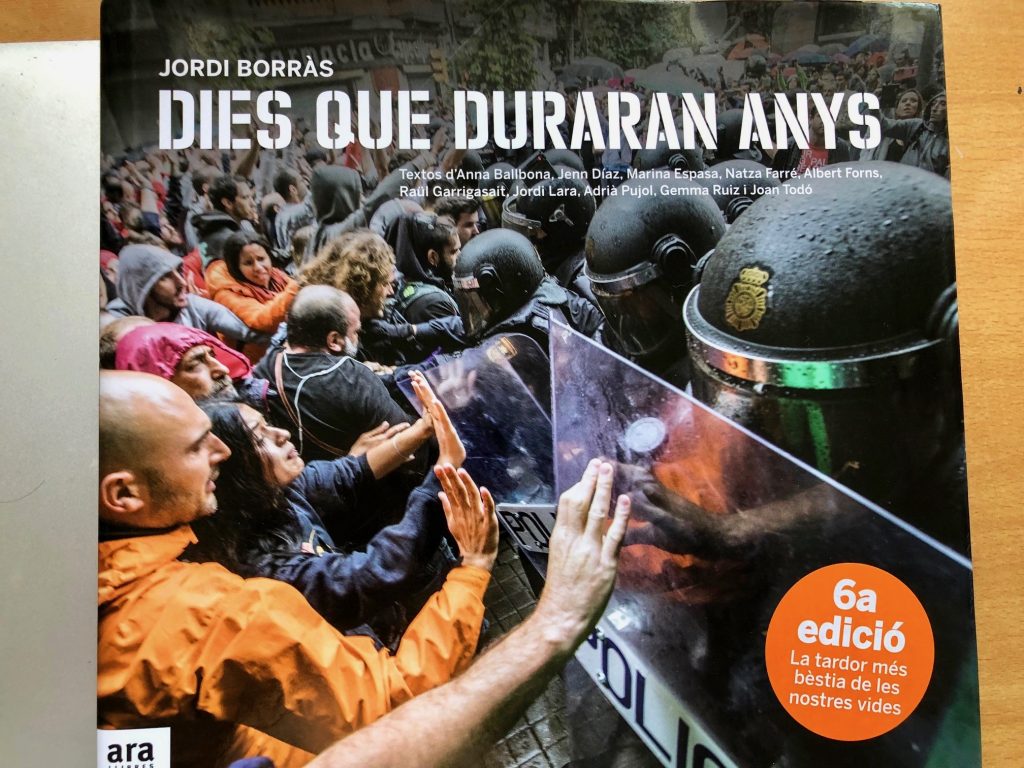
And don´t miss:
- The 10 tips to go to Barcelona
- Summer 2018 article traditions Iceland
- How are the Icelanders? 10 things
- Interview in Morgunblaðið
- Second interview Morgunblaðið
- 10 top wines in Iceland Vínbúðin
- Mugison Interview
- The Interview to Árni Þórarinsson
- Interview to Andri Snær Magnason
- The Interview to Hallgrímur Helgason
- Interview to Sjón
- The interview to Blaz Roca
- Interview to Halldór Már (guitar and showman in TV3)
- The interview to HAM
- Interview Agent Fresco
- Interview to Úlfur Úlfur
- The interview to JóiPé x Króli
- Úa publisher of Forlagið
- Óttar Norðfjörður interview
- Interview to Aron Can
- Baltasar Kormákur interview
- Mexico Guadalajara Book Fair
- Victor del Árbol writer
- Kim Manresa photographer
- Benedikt Erlingsson
- Carmen Posadas writer
- Börkur Gunnarsson writer
- Kristinn R. Ólafsson
Interview Jordi Borràs
The original interview was entirely in Catalan.
14th October 2019: Nine Catalan politicians have given prison sentences from 13 to 9 years. The situation in Catalonia is very serious. Many citizens are fighting the police on the streets of Barcelona and other cities of Catalonia. Please help.
Today, July 18, 2019, about a year ago, a policeman dressed as a civilian attacked the Catalan photojournalist Jordi Borrás on the street. He will explain it here
Read the full article in Spanish
He was leaving L’Ateneu Barcelonés, the same place where we are this morning of heat, on the terrace, near the pond, and surrounded by birds that put the soundtrack to this interview
Jordi Borràs enters the garden discreetly, with his jeans, his striped shirt and sits at my table. He is a guy who could go unnoticed in any square in Gracia, his neighbourhood
His last photo book Dies que duraràn anys (Days that will last years) Ed. Ara Llibres, about the Catalan referendum to become independent from Spain and brutally repressed by the police, is a best seller
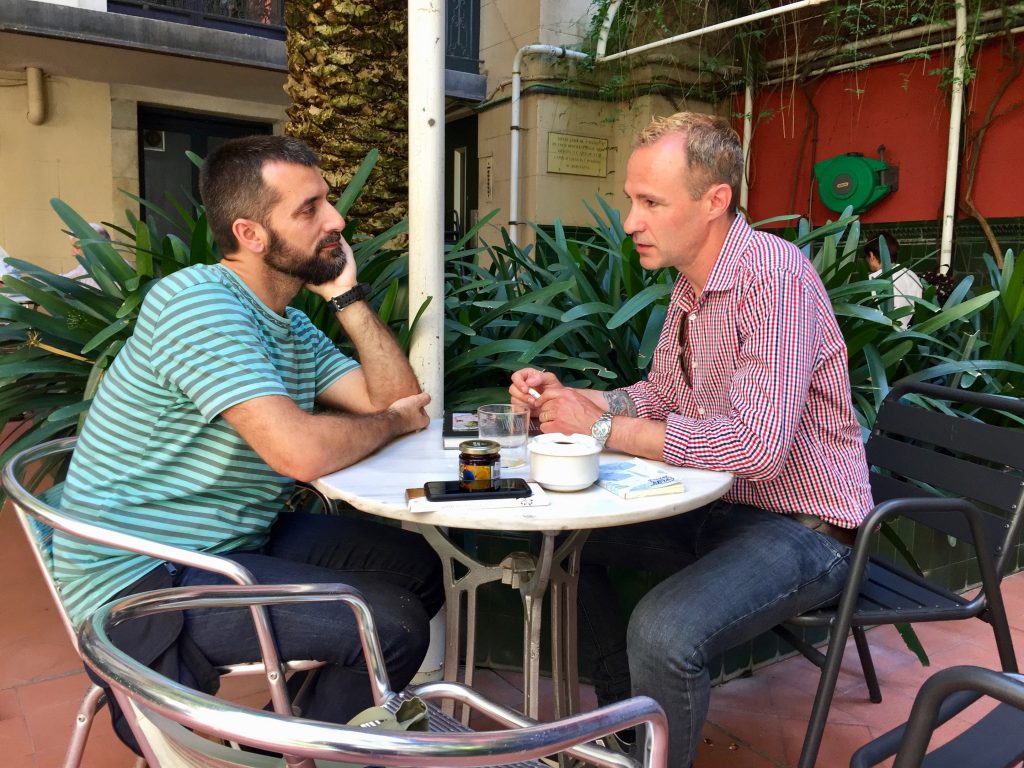
Interview Jordi Borràs. Biography
First of all, Jordi Borràs (Barcelona 1981) is an independent photojournalist specialized in cases related to fascist groups and Spanish nationalism. A dangerous profession in the currently times in Catalonia
Second, Jordi Borràs began studying illustration at the prestigious Massana School, but he soon discovered photography was his thing
Then he got introduced in the world of independent journalism linked to social movements in Barcelona and started working on the weekly Directa
In 2009 he began to make a living with his stunning photos
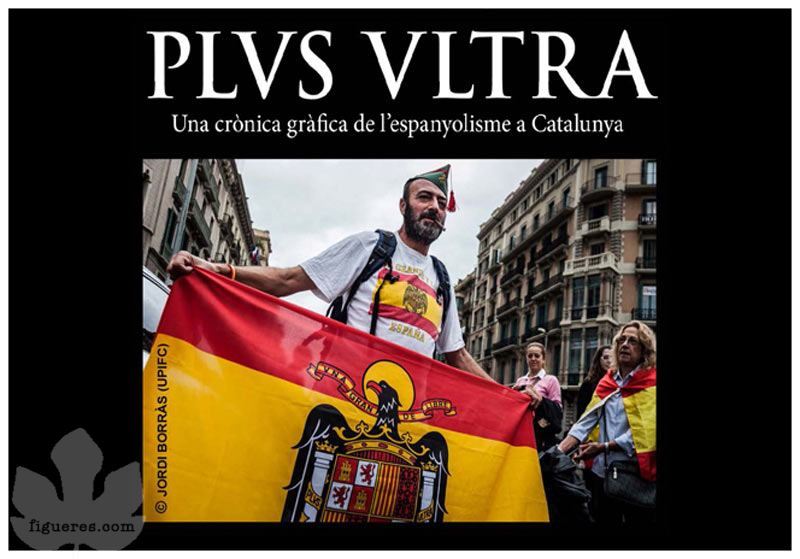
«First I worked who I could with and now I work who I want with. I usually collaborate with independent digital media»
Still some people give more importance to the newspapers rather than the digital media
«After the crisis, the paradigm changes, digital media takes advantage over classic newspapers
Who today he gives more value to a paper media rather than another digital is that he has not understood how the market works. In fact, the paper has remained obsolete
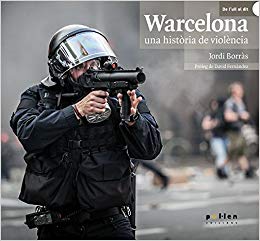
However, I still love books (my father is a publisher) and printed pictures»
He also collaborates with print media such as the Swedish magazine Expo and the Basque magazine Argia
Do the traditional newspapers distort the news according to their interests?
«I particularly feel more comfortable with the press that does not depend on large lobbies (which of course respond to suspicious economic interests)
In addition, the deal with independent media is more direct and humane »
Regarding that, something similar the famous photographer Kim Manresa told me
It is suspected that the Government of Spain was in contact with the terrorists before they committed the attack in Barcelona
Jordi´s eyes take a special bright
«The research raises many questions about what happened on August 17, 2017»
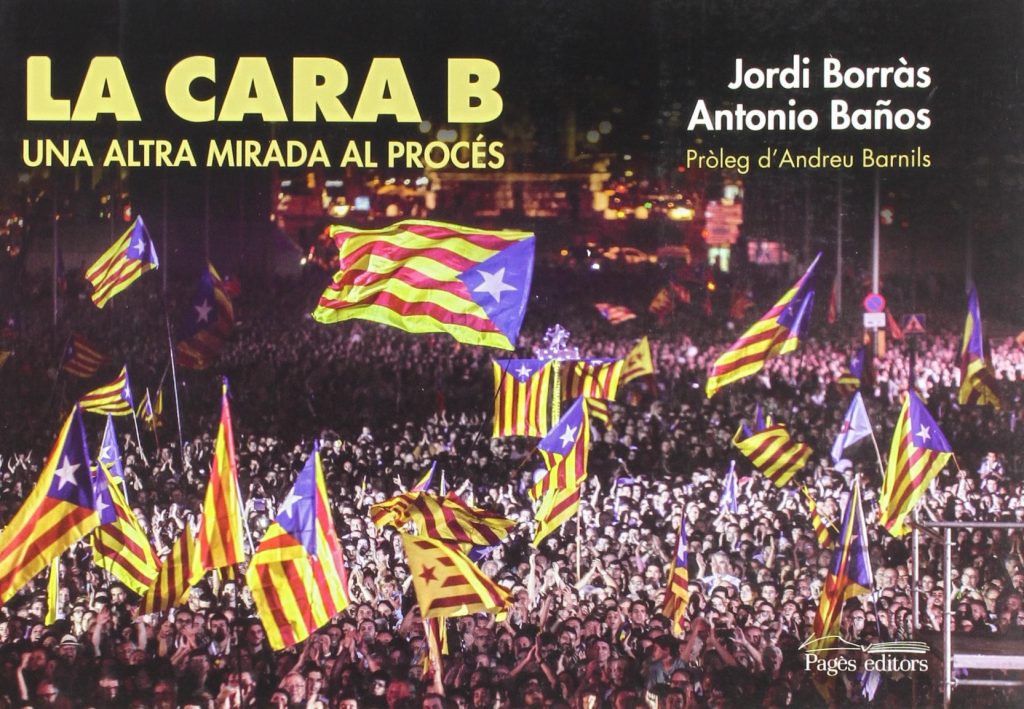
What happened in Las Ramblas?
«The newspaper Publico is recently revealing very important information regarding the terrorist attack. The brain of the attack, the imam of Ripoll, was a informer of the CNI (Spanish secret service) for many years
Namely, the terrorist phones were intervened for at least 5 days before the attack. To make matters worse, the CNI helped Abdelbaki es Satty to be the imam of the village Ripoll and avoided his extradition (he had been imprisoned for drug dealing) on condition that he collaborated with them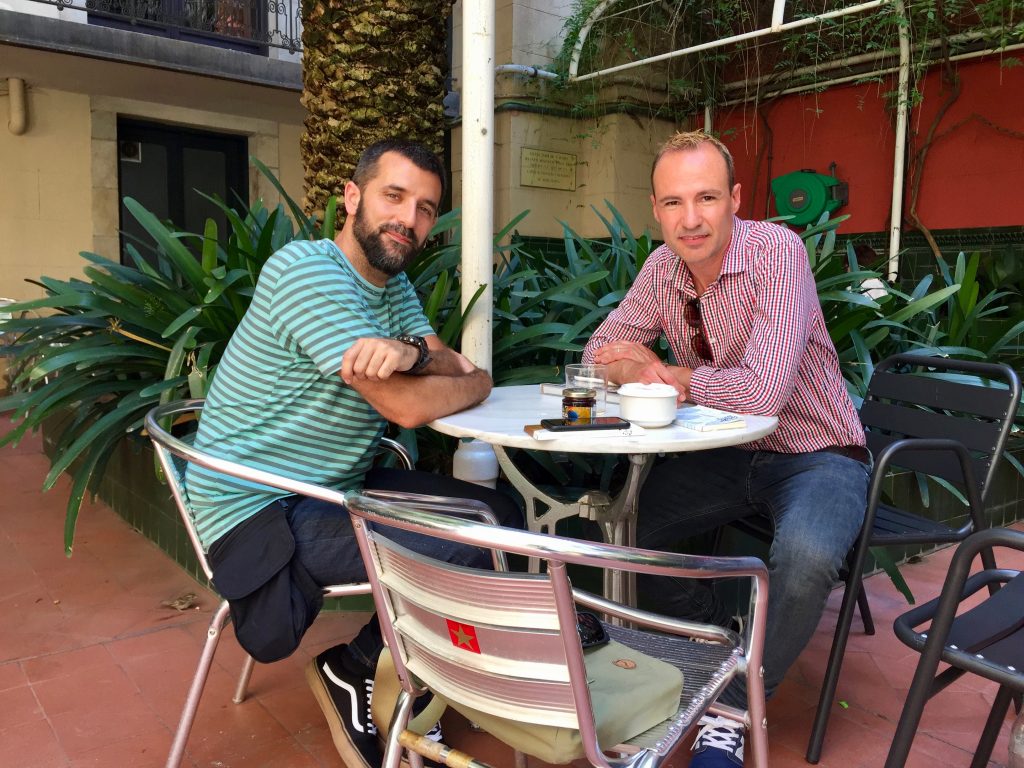
All in all, it is soon to draw conclusions; but at least it is a case of huge negligence because there are internal CNI documents that prove it. So information has been hidden from the citizens and the government does not know how to answer these questions »
The investigation is ongoing
A police dressed as a civilian hit him on the street in daylight
«A person I didn´t know shouted at me on the street: Viva España! Even though I didn´t pay attention to it, he followed me, approached me and repeated Viva España! and viva Franco!
Then he hit me, that guy knew how to hit well. When he had me on the floor, I instinctively asked for the police. Then he replied: I am a policeman!
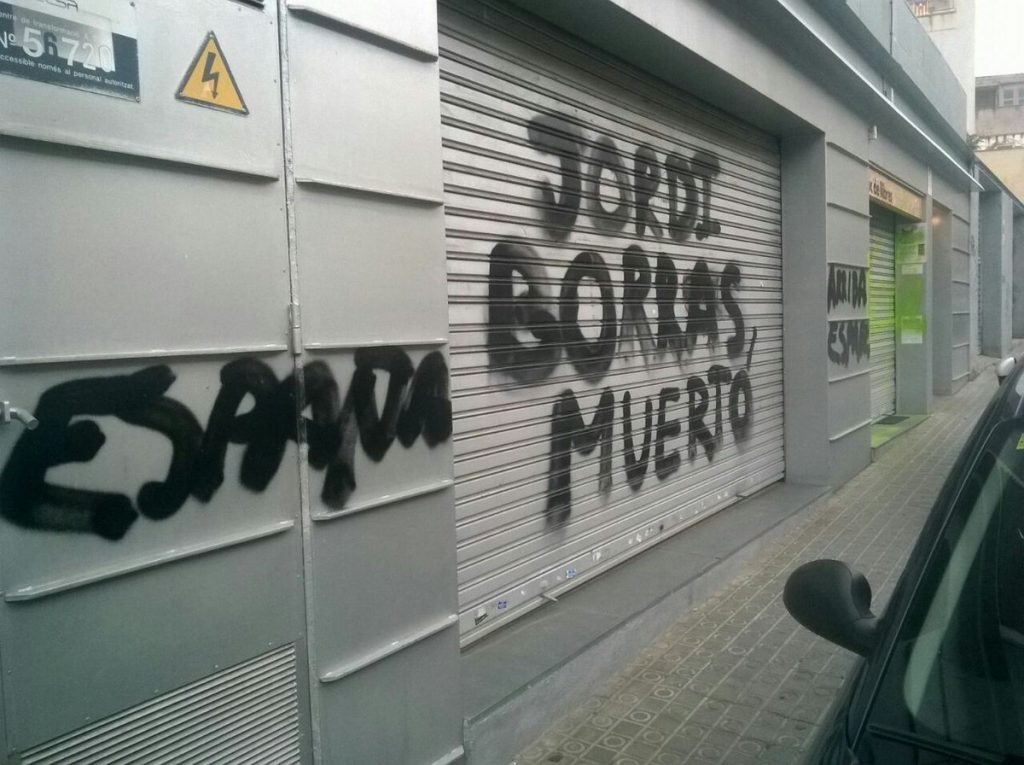
Fortunately, there were some neighbors from the area who saw everything. Thanks to their testimony, I am not now in jail because he later had the nerve to report me as if I had attacked him »
Interview Jordi Borràs. Why do he hit you?
«I guess because he recognized me as a researcher of the Spanish extreme right»
What politic parties are you investigating?
«Many like VOX that has come out of marginalization, but the spectrum of my research is much broader»
Do you think it makes any difference a Spanish government from PP (right wing) or PSOE (left wing) for Catalonia?
«I think there will be no change. The PSOE (Pedro Sánchez) would do the same as PP (Mariano Rajoy) if necessary»
Interview Jordi Borràs. Why?
«For example, in the 80s the socialist party was responsible for the government’s dirty war against ETA, with the GAL formed by Italian, French and Algerian policemen and far-right mercenaries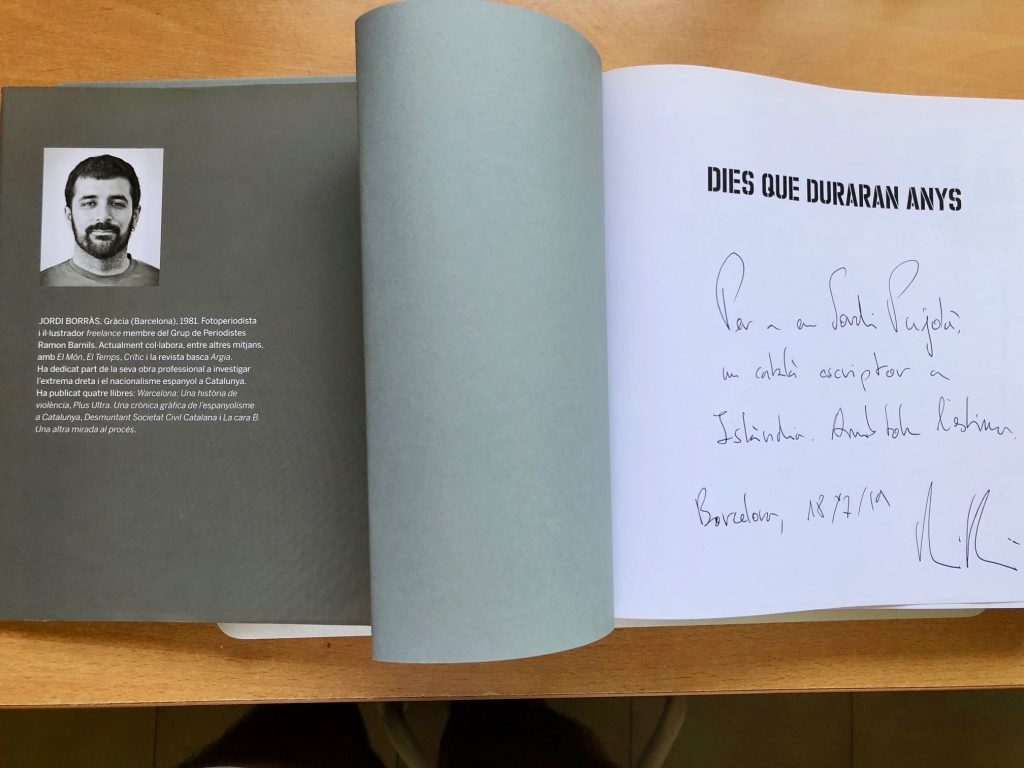
In fact, the PSOE and PSC (Catalan branch) have been demonstrating for the unity of Spain with VOX, National Democracy, La Falange Española… on the streets of Barcelona in autumn 2017
In conclusion, both parties have in common to guarantee the unity of Spain above all »
Why the Catalan parties don´t agree on a common project?
«To begin with, it is a complicated matter. Imagine Catalonia and Spain are fighting a boxing match
The first round, the 1st. October, the referendum was won. Despite it caused a national trauma because the police hit the people to prevent them from voting
The second round, the general strike of 3th. October was also won (very important) and then later there were a series of technical chaos until the only way out, after seeing that the Spanish government would not negotiate, was the unilateral declaration of independence of the 27th. October 2017
In other words, the world need to know that Catalan society is suffering from severe repression
Nevertheless, independence in Catalonia is a quite new phenomenon that have begun increasing exponentially since 2012. Which means that it is also immature and has taken by surprise the independence parties, which have also their own interests (the CUP, ERC, Junts Per Catalunya (Puigdemont)…)
Thus, during the fall of 2017 shared interests could be agreed, but today there is no horizon as the one on the day of the referendum, so they are a bit lost …
However, I am not worried, it´s just a matter of time»
Interview Jordi Borràs. Is not an agreement to Spain the key of the problem?

How can you defeat a State like that?
«Trusting the power of the people and making this inability of the Spanish government to negotiate turn against them
In short, independence in Catalonia has grown up due to the refusal of the Spanish State to negotiate and understand that there are people who want to live in their own way the fact of being Catalan
Much of this independence revolution begins when a sentence of the Spanish Constitutional Court repeals a reform of the Statute of Catalan Autonomy. There were a series of laws proposed and voted in the referendum of Catalonia in a legal and constitutional way that the same Spanish Constitutional Court refused
To summarize, the Spanish State have considered the Catalans second-class citizens for many centuries and now we are tired
Spanish imperialism has been losing territories for 400 years, which shows us that the empires are cyclical and the State is the victim of its inability to accept different ways of thinking»
How will this end?
«I have no doubt that it will end with the independence of Catalonia»
Interview Jordi Borràs. When?
Jordi strokes his beard and the earring he wears on his left ear
«Nobody knows. The boxing match continues and will last as long as it has to last»
Many years ago the only big party that supported officially the independence was ERC and they were seen like weirdoes. Don’t you think that many parties and politicians have now signed up for the independence because it gives votes?
«Well, I am pro-independence since I was a child, but now there is a catharsis in the independence movement
The important thing is that there has been a change in the Catalan society that will be difficult to reverse, because the bulk of current independence is formed by people who a few years ago were not supporting the independence and believed that a deal with Spain, a reform of the State, was possible; but now these are the most pro- independence you can find because they know that what they had been promised is a sham
On the other hand, at this point in the movie, being independent is not easy or cheap
The State has already charged a thousand people
Consequently, if you are pro- independence you are suspected of crime and aware of the risks involved
Imagine, you can go to jail just for the way you think»
Interview Jordi Borràs. Political prisoners in Catalonia
«For example, Jordi Sánchez and Jordi Cuixart who are 2 social pro-independence (non-political) leaders have been in jail for 2 years. Neutral and international observers (UN) have repeatedly asked for their release because of his status of political prisoners. This obstinacy of the State is what causes that there are more and more pro-independence people »
Iceland is worried for Catalunya
«Liking is reciprocal (shows a frank smile). Iceland generates interest, we even have a very good radio program called Islandia
Iceland has been part of our cuisine for many years: the cod of Iceland!
As Iceland achieved total sovereignty over Denmark recently (1944), they can understand our situation very well »
Read the interview to Sjón supporting Catalonia
Why do the Catalans want the independence?
«The Catalans all we want is to be free, sovereign and governed by ourselves. We do not want to be more than others, but not less »
Interview Jordi Borràs. How are the Catalans?
«Catalonia is an open, multicultural and tolerant country. Due to our privileged geographical situation in the Mediterranean, it has always been a place of trading; countless cultures have lived together in peace and have enriched each other
For that reason, ours is not a movement focus on seclusion and intolerance as the Spanish that tries to block other cultures among its kingdom
In conclusion, the only condition of being Catalan in Catalonia is wanting to be that. And you can be Icelandic and lead a program on TV3 (Television of Catalonia). For example, Halldór Már. Actually we consider him as a Catalan
Another example is the biggest demonstration in favor of the reception of refugees in Europe was in Barcelona
To summarize, Catalan is an open and respectful society with other cultures»
How do you manage to take so good pictures in so situations of pressure and violence?
Jordi Borràs manages to convey to the reader the terror of police charges in Catalonia with his pictures
«The key is to be there, stay informed of the political news and to know when, where and who calls the demonstrations to be able to predict whether it will be a quiet or violent one with the police or opposing ideology groups, etc.
In short, experience helps you to sense the character of the demonstration
As the photographer Kappa used to say: if a photo didn’t work out, it’s because you weren´t close enough
In addition, my favorite objective is a 35mm that is an angle that forces you to be within the action
Therefore, if there is a police charge, it forces you to be on the line between demonstrators and the police. Of course, you might be hit now and then: occupational hazards
Books by Jordi Borràs
- Warcelona: Una història de violència
- Plus Ultra: Una crònica gràfica de l´espanyolisme a Catalunya
- Desmuntant Societat Civil Catalana
- La cara B: Una altra mirada al procés
- Dies que duraràn anys
Interview Jordi Borràs by the Catalan writer in Reykjavik
[ninja_form id=2]
